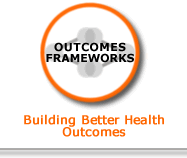 |
C. Evidence for interventions to improve knowledge of recovery across the workforce for integrated service delivery (Recovery Model) |
|
Summary There is review-level evidence and policy directives supporting a joined- up approach from services to support individuals in addressing problem drug use. Rationale NICE Clinical Guidelines for Drugs Misuse: Psychosocial Interventions (CG51) [1] general considerations state:
Best et al (2010), in the Scottish-Government-commissioned review, concludes that the key ingredients of effective treatment include qualified and supported staff in a service with a clear treatment philosophy, delivering packages of evidence-based care that addresses clinical needs, that provides appropriate psychosocial interventions and that provides appropriate links to ‘wraparound’ care in the community and to ancillary needs specific to the individual. [2]
Scottish policy and practice note Supporting the Development of Scotland’s Alcohol and Drug Workforce [3] sets out the aim of identifying all actions required to deliver the alcohol and drug workforce and to outline the important roles and contributions of those directly involved in workforce development. The Scottish Government's Developing Recovery-Orientated Systems of Care (ROSC) through Service Redesign: Driver Diagram [4] is a tool to assist local areas with service planning and redesign to work towards the implementation of a recovery-orientated system of care (ROSC). The tool includes links to guidance and advice when undertaking system redesign work locally. NHS Scotland’s Strategy for Workforce Education and Development related to BBV Service Delivery (2014) [5], developed by NHS Education for Scotland (NES) in partnership with stakeholders at the request of the Scottish Government, is to support implementation of the Scottish Government Sexual Health and Blood Borne Virus Framework 2011–2015 within NHS Boards through cohesive workforce education and development activity. It specifically focuses on the blood-borne virus (BBV) HIV, hepatitis C and hepatitis B elements of the national framework, reflecting sexual health issues only as they relate to BBVs.
|
References:
|

